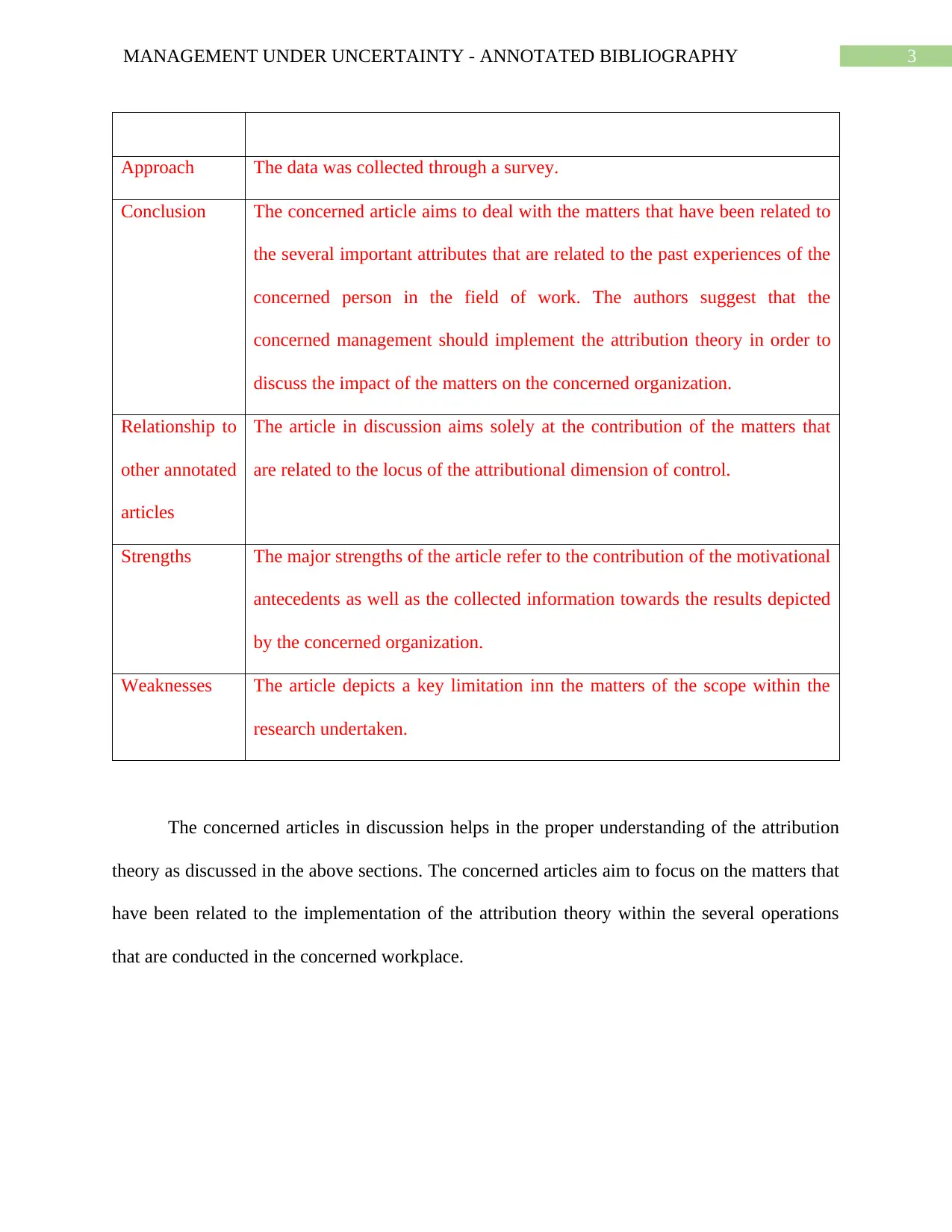Annotated Bibliography: Exploring Attribution Theory in Management
VerifiedAdded on 2023/06/03
|5
|892
|319
Annotated Bibliography
AI Summary
This annotated bibliography examines the application of attribution theory within the field of management, focusing on how individuals attribute causes to events and behaviors in organizational settings. The bibliography includes two key articles: the first explores the underutilization of attribution theory in organizational research and its importance in understanding cognitive processes and organizational outcomes. The second article investigates the implementation of attribution theory in the workplace, highlighting the impact of past experiences on employee behavior and organizational success. Each entry provides a summary of the article's aim, methodology, key findings, strengths, and weaknesses, offering a comprehensive overview of the current research landscape and its implications for management practices, particularly in understanding and influencing workplace dynamics and performance. The articles emphasize the importance of attribution theory in comprehending and managing employee behavior and its impact on organizational outcomes.
1 out of 5








![[object Object]](/_next/static/media/star-bottom.7253800d.svg)